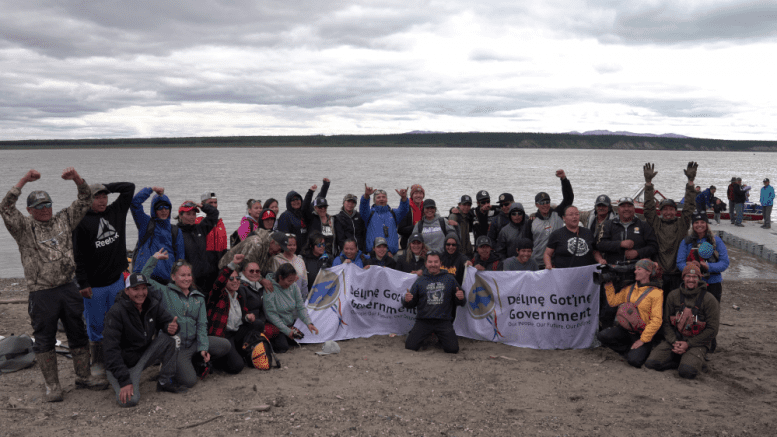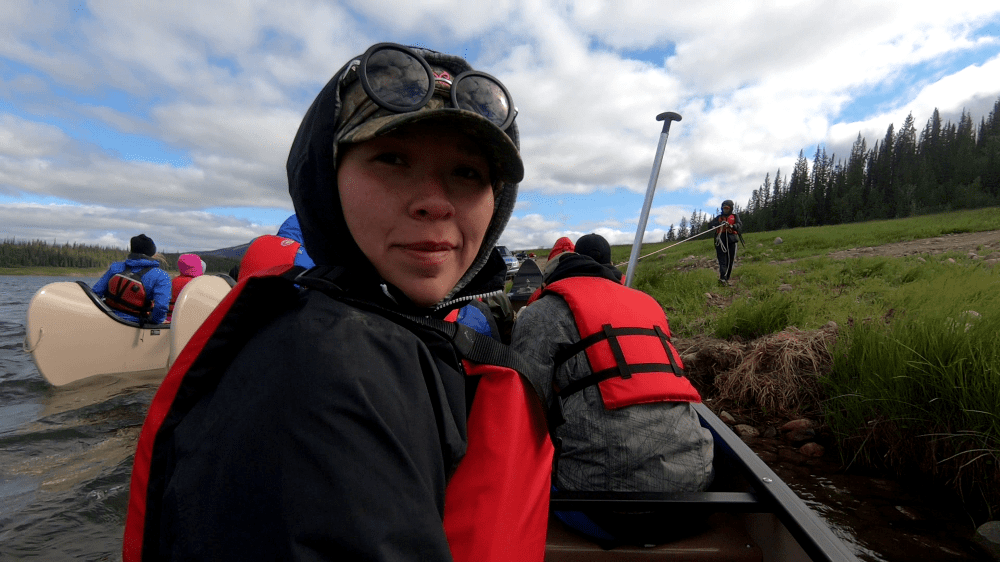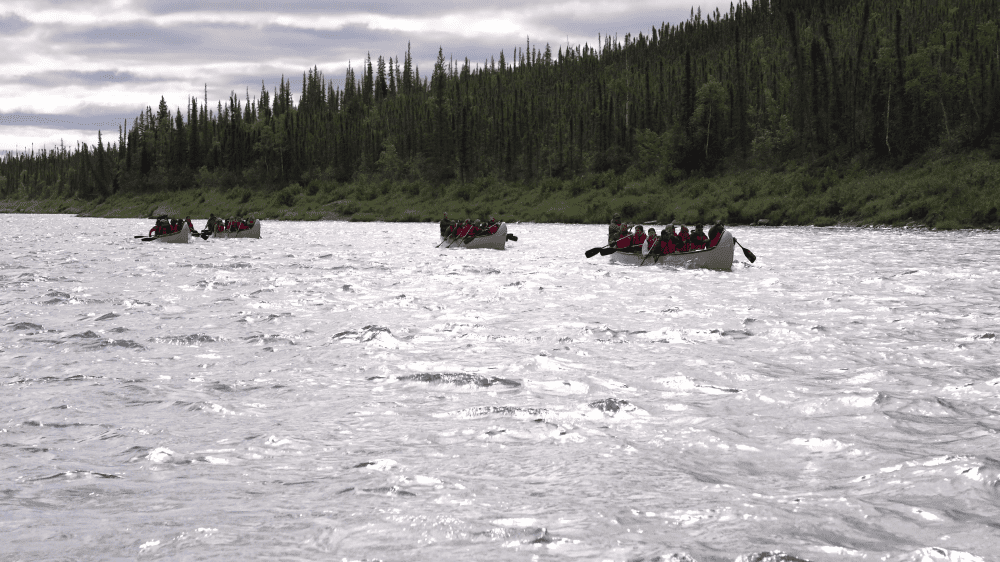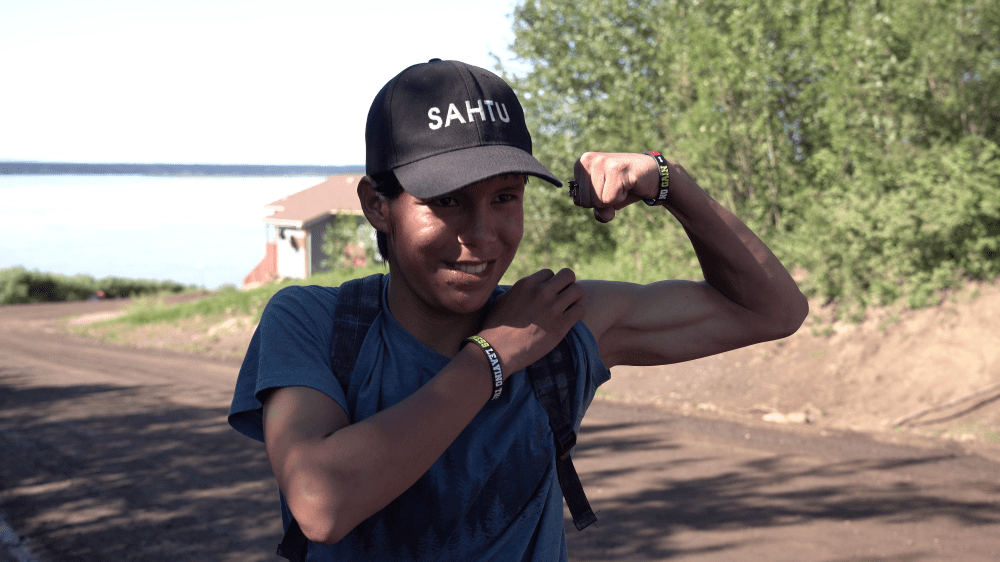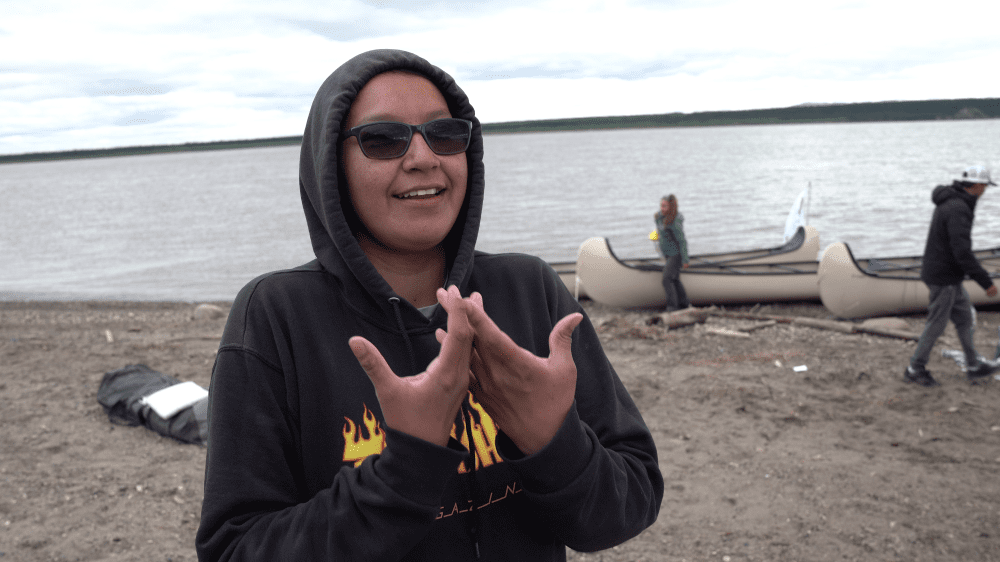It was the first time Danielle Takazo had been away from her two-year-old son.
The young mom was one of 43 paddlers that travelled from Délı̨nę to Tulít’a along Sahtú Deh (Great Bear River) for the commemoration of Treaty 11.
It took the group about two days to travel the 113-kilometre waterway that connects the communities — through whitewater, rainy weather, and multiple bathroom breaks.
“I really wanted to do this for myself, I say that’s the biggest part of it,” says Takazo. But the experience is also larger than just herself: “I am doing it for my son, for my partner, for my parents, my partners’ parents, and grandparents, ancestors, the creator.”
Takazo says being on the land is a way to reset and heal if needed.
“I feel more alive when I go out on the land,” she says.
Third year in a row
During the commemoration, several leaders spoke about the importance of connecting youth to the land, of being grounded in cultural teachings.
According to Cyre Yukon, that’s exactly the goal of the canoe trips.
In an interview with APTN, Yukon explained that she started organizing the trips as part of her job back in 2019. Since then, she’s become Délı̨nę Got’ı̨nę Government’s chief operating officer; while the trips technically aren’t her responsibility anymore, she wants to keep them going with a specific objective in mind.
“We plan on going to different locations to learn about the different areas around the lake… And our goal is to eventually go all around Great Bear Lake, so I’ll go as long as I can,” she said.
The paddlers camped the night of July 14 at Bennett’s Field on the shores of Sahtú Deh — a special area for Yukon.
“Growing up as children, we used to camp there a lot,” she said. “So it brought back the stories that my dad used to tell me about that place with my aunties.”
Youth and leaders on the land
Every trip brings its own set of challenges, but Yukon says safety is always top of mind. Some participants had never paddled before and were met with an immediate challenge: a set of rapids along the river.
At 16, Kayden Neyelle and his twin brother Marcus were the youngest paddlers to make the trip.
“I was scared,” says Kayden, when the group hit the rapids. But one of the guides told him to stay calm, don’t touch the sides of the canoe, and just keep paddling.
Kayden and Marcus were also a central part of the fire feeding ceremony before the group left Délı̨nę. Between the ceremony and the welcome in Tulít’a, Kayden says he isn’t used to being the centre of attention, but that the experience helped his confidence.
One of the more experienced paddlers was Sahtú Grand Chief Wilbert Kochon. From the bow of one of the four canoes, he worked with guides to help the group navigate through the rapids.
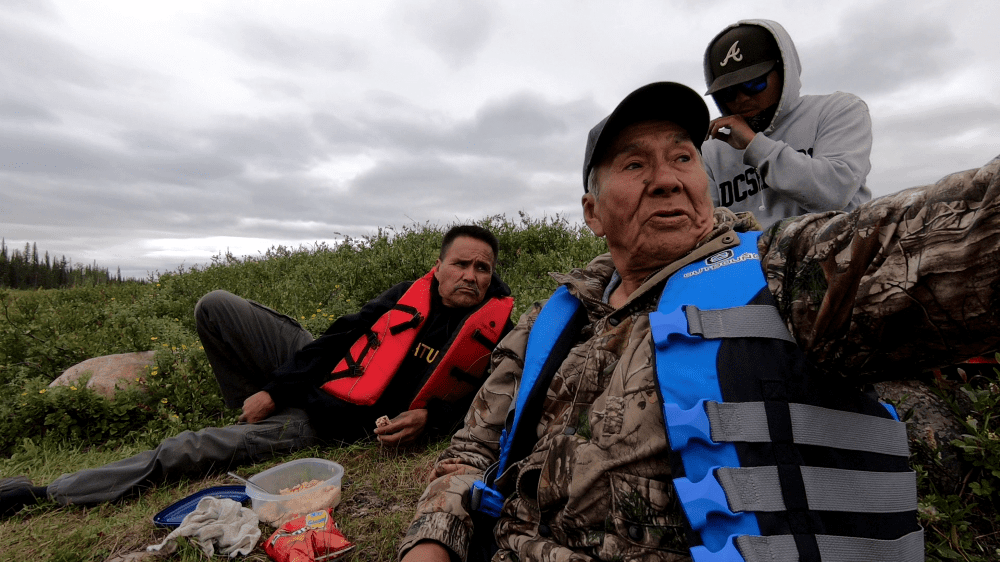
Sahtú Grand Chief Wilbert Kochon (left) and Jimmy Dylan. As an Elder, Dylan, 81, shared his knowledge of the land with youth on the trip. (Photo courtesy of APTN)
He says his years of experience on the land is what guided him.
“It was OK for me and as long as you’re on the land, you’re not going to be scared of the water or anything on the land,” he says. “I think for a lot of young people, they don’t really know that they have to be in touch with the land to really find themselves.”
He says after passing through successfully some of the youth thanked him for the help.
“When a young person comes to you and tells you that, it makes you feel good,” he says, “that you are doing something little for them, and they’re looking at you as a leader.”
Délı̨nę Chief Leeroy Andre was also one of the leaders on the trip.
‘The welcoming lift up my spirit’
As the paddlers poured into the Deh Cho (Mackenzie River) nearing the end of their voyage, Tulít’a residents gathered on a hill overlooking the river and down by the shore clapping, waving, and shouting encouragement. The yells mixed in with celebratory gunfire from the canoes announcing the group’s arrival.
“The welcoming lift up my spirit,” Roseanne Taneton told CKLB minutes after stepping off the canoes. She admitted people were “grumpy for a bit” but after “seeing everyone and honking and shooting guns like the traditional way, everyone just got happy.”
Taneton has been on previous canoe trips on Great Bear Lake, but this one was tougher.
“Holy smokes, this one was a challenge,” she said. Between the “nerve wracking” rapids and paddling against the current for the final stretch, “we had to give her our all and it was a great experience.”
The Treaty 11 commemorations were not only an opportunity to honour traditions — including canoeing as a way of travel — but also show youth the strength of support between Sahtú communities.
With files from APTN.

